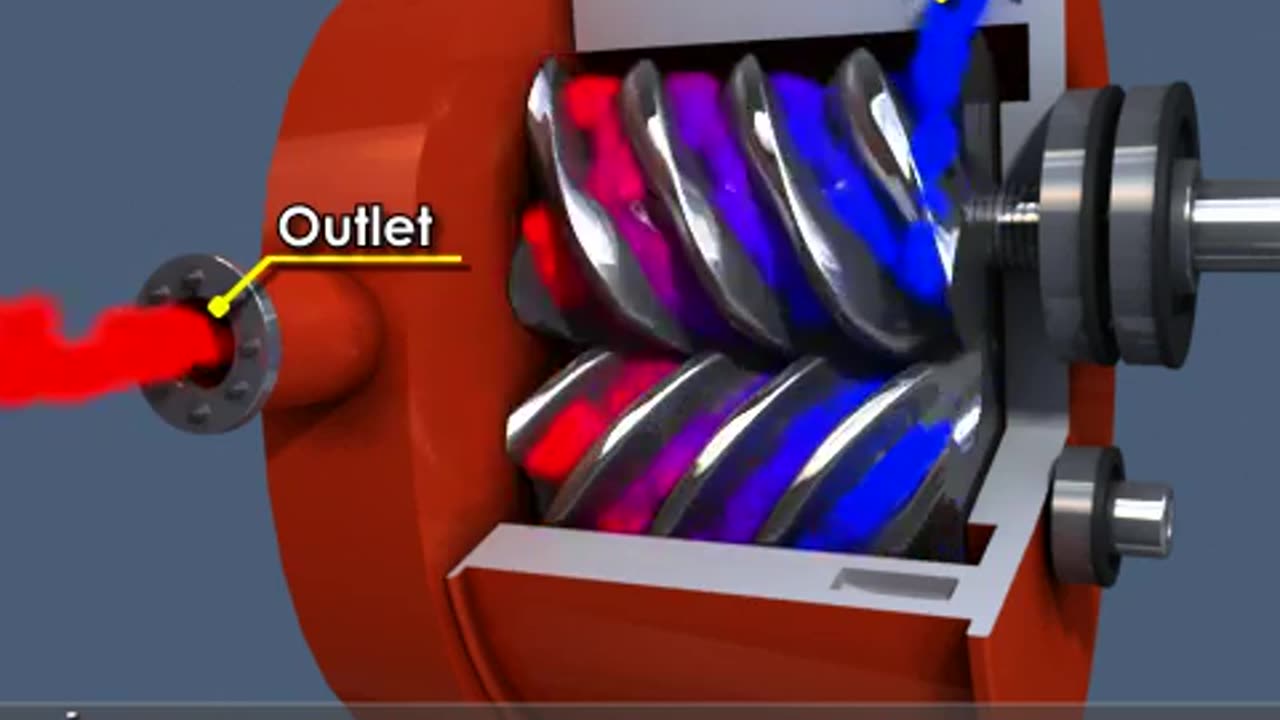Premium Only Content

Compressed Air Fundamentals Safety
Compressed air is widely used in various industries, but it can be dangerous if mishandled. Below are some fundamental safety guidelines when working with compressed air:
---
### **1. Pressure Awareness**
- **Never exceed recommended pressures**: Ensure equipment operates within the manufacturer's specified limits.
- **Use proper regulators**: Control pressure accurately to avoid overpressurization.
### **2. Personal Protective Equipment (PPE)**
- **Wear safety glasses or goggles**: Compressed air can propel debris, which could cause eye injuries.
- **Use hearing protection**: Prolonged exposure to loud air compressor noise can cause hearing damage.
### **3. Safe Operation**
- **Never direct air at yourself or others**: High-pressure air can penetrate the skin and cause serious injuries, including embolisms.
- **Use proper tools and nozzles**: Avoid makeshift solutions that could lead to equipment failure.
### **4. Hose Management**
- **Inspect hoses regularly**: Look for wear, leaks, or damage that could cause them to burst.
- **Secure hoses properly**: Avoid tripping hazards and ensure connections are tight.
### **5. Workspace Safety**
- **Avoid using compressed air to clean yourself**: It can embed particles in the skin or damage hearing and eyes.
- **Ventilate properly**: If compressed air is used to clean a workspace, ensure airborne debris doesn't cause respiratory hazards.
### **6. Equipment Maintenance**
- **Follow a maintenance schedule**: Regularly inspect and service air compressors and related equipment.
- **Check safety valves**: Ensure relief valves function correctly to prevent overpressure situations.
### **7. Emergency Preparedness**
- **Know how to shut off equipment quickly**: Familiarize yourself with emergency shut-off procedures.
- **Keep first aid kits accessible**: Be prepared for injuries caused by compressed air incidents.
---
**Remember:** Even though compressed air may seem harmless, its misuse can result in severe injuries or fatalities. Always treat it with respect and follow safety protocols.
-
 6:54
6:54
HSESafetyInformation
18 days ago6 Must Try Breakfast recipes By Food Fusion
291 -
 47:50
47:50
Candace Show Podcast
6 hours agoBREAKING: Judge Makes Statement Regarding Taylor Swift's Text Messages. | Candace Ep 155
113K112 -
 1:14:23
1:14:23
Josh Pate's College Football Show
3 hours ago $0.29 earnedCFB’s Most Hated Teams | FSU & Clemson Future | Big Ten Win Totals | Star Rankings Overrated?
14.5K -
 1:33:47
1:33:47
CatfishedOnline
5 hours agoGoing Live With Robert - Weekly Recap
27.8K -
 55:18
55:18
LFA TV
1 day agoEurope’s Sudden Turn Against America | TRUMPET DAILY 3.6.25 7PM
32.2K3 -
 4:21
4:21
Tundra Tactical
4 hours ago $2.12 earnedPam Bondi MUST Enforce Due Process NOW!
23.7K1 -
 56:42
56:42
VSiNLive
5 hours agoFollow the Money with Mitch Moss & Pauly Howard | Hour 1
48K1 -
 1:05:32
1:05:32
In The Litter Box w/ Jewels & Catturd
1 day agoShalom Hamas | In the Litter Box w/ Jewels & Catturd – Ep. 756 – 3/6/2025
103K37 -
 1:23:00
1:23:00
Sean Unpaved
7 hours ago $3.19 earnedNFL Free Agency
53.4K4 -
 18:25
18:25
Stephen Gardner
6 hours ago🔥The REAL REASON the Epstein Files are being HIDDEN | I CONFRONT Alan Dershowitz for details!
66.2K145